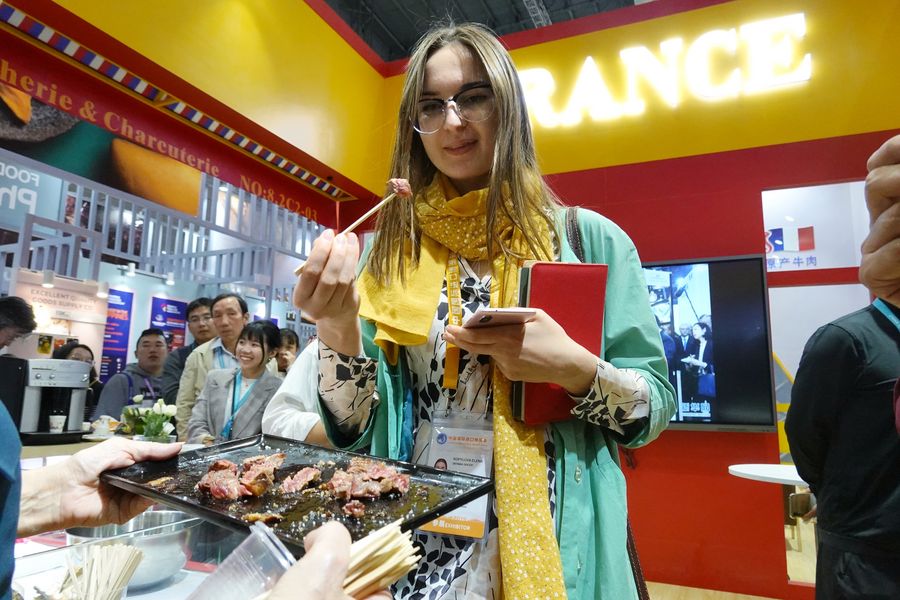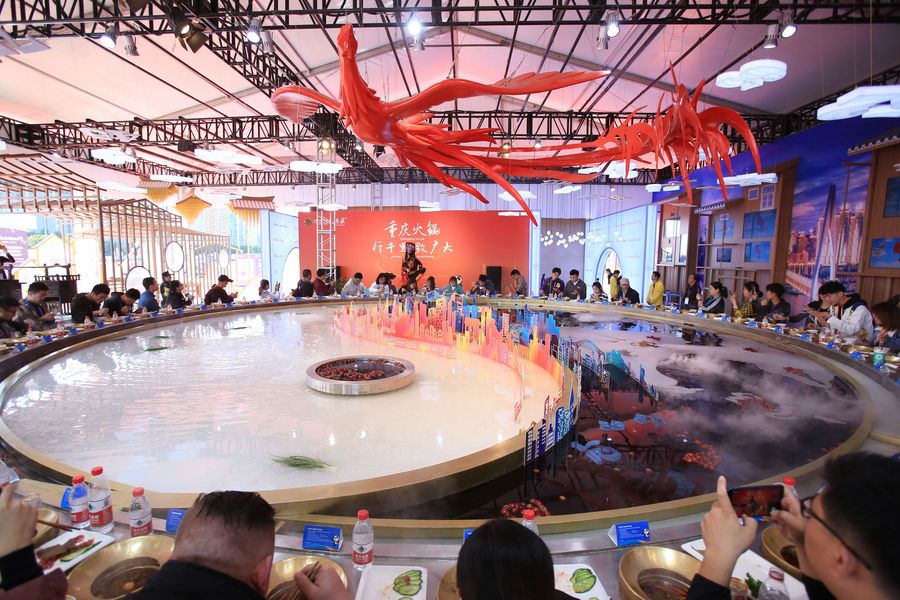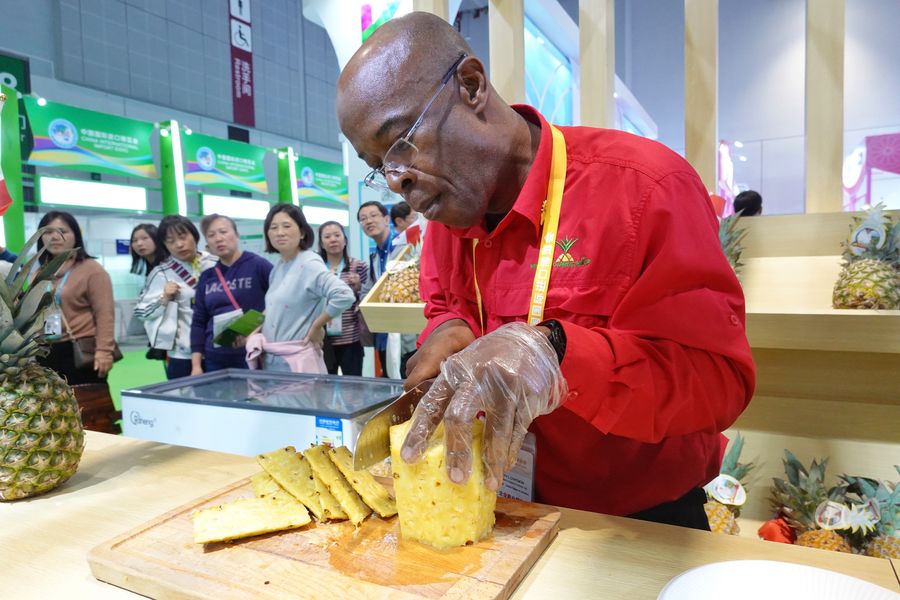
Visitors take photos at the Lebanese Pavilion during the second China International Import Expo (CIIE) in Shanghai, east China, Nov. 7, 2019. (Xinhua/Chen Fei)
"The expo was perfect!" said a Lebanese soap manufacturer, expressing confidence in signing an agreement with a Chinese company to promote his products in China, after taking part in the second China International Import Expo (CIIE) in November, 2019.
by Dana Halawi
BEIRUT, Nov. 29 (Xinhua) -- Lebanese traders who took part in the second China International Import Expo (CIIE) this year reported positive results for their participation in one of the biggest events in the world.
Some of them succeeded in signing deals that would give them the opportunity to enter the Chinese market while others have succeeded in expanding their contacts in the Asian country.
"The expo was perfect," Amir Hassoun, owner of Khan al Saboun, a soap manufacturer in north of Lebanon, told Xinhua that "people loved our products and we were capable of signing a Memorandum of Understanding (MoU) with a Chinese private company that will distribute our products to shops in China."
Hassoun added that he has received a lot of emails from clients in China who are interested in importing his products.
"Our priority now is to find a sub-distributor in China who would promote our products in several Chinese cities," he said.
Elie Maamari, export manager at Lebanon's Chateau Ksara winery, said he was capable of signing a MoU with a big Chinese company interested in spirits.
"We should follow up constantly to be able to get orders," he said.
For his part, Charbel Gebrael, owner of Tannourine Roastery, a nuts factory, said he was capable of striking two deals, one with a big Chinese company and another one with a small retailer.
"I am very happy with the results as this was our first time going to China. I am currently preparing for the orders," he said.
Gebrael noted that these two customers will allow him to enter the Chinese market.
"It is a great opportunity because one of these companies is a distributor and the other has an online platform," he said, expressing his keeness to participate in other expos next year.

A visitor tastes French steak at Food and Agricultural Products exhibition area during the second China International Import Expo (CIIE) in Shanghai, east China, Nov. 9, 2019. (Xinhua/Cai Yang)
Meanwhile, Kassem Tofaili, president of the Arab Chinese Cooperation and Development Association, said he participated with two booths, one for his association and the other was for the Silk Road Commerce and Consulting, a consultancy firm.
He explained that the association provides services, such as promoting tourism and education in Lebanon while the consulting company help Lebanese companies do business in China.
Tofaili said that not only the new Lebanese participants in the second CIIE managed to make new deals in China, but also the previous participated companies succeeded in expanding their business.
The second CIIE, which took place in Shanghai, China on Nov. 5 to 10, gave companies all over the world the chance to enter the Chinese market.

Diners eat around an extra large hotpot at an exhibition area for the second China International Import Expo (CIIE) at the National Exhibition and Convention Center (Shanghai) in east China's Shanghai, Nov. 8, 2019. (Xinhua/Sui Xiankai)
The expo enables countries all over the world to strengthen economic cooperation and trade, and to promote global trade and world economic growth in order to make the world economy more open.
"We appreciate the economy ministry's efforts in facilitating our participation in the expo," said Maamari, expecting a more attractive location in the expo next year.
Gebrael also voiced his concerns about the increase in the U.S. dollar price in Lebanon which will lead to higher price of Lebanese exported products because Lebanon imports raw materials from foreign markets by paying in dollars.
"This will reduce our competitiveness in China," he said.

Visitors wait to taste a slice of pineapple from Panama at Food and Agricultural Products exhibition area during the second China International Import Expo (CIIE) in Shanghai, east China, Nov. 9, 2019. (Xinhua/Cai Yang)
Lebanon has been witnessing a shortage in U.S. dollar which increased demand for the currency and created a parallel market in which the dollar is being sold at a rate higher than the regular rate of 1,505 Lebanese pounds.
This has created a lot of problems for Lebanese manufacturers who are expected to import less raw materials in the coming months and thus they will manufacture and export less products at a higher cost, which will reduce their competitiveness. ■



